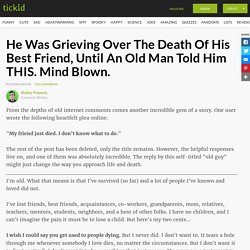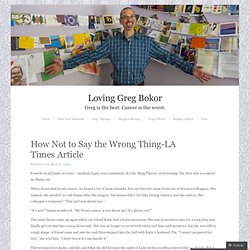

Random Acts of Faith. To the middle aged woman who gestured angrily and yelled as we passed… To the thirty-something man in the power suit who honked and forced his black SUV through our line… To the person who tried to pass us and then moved his car into our lane to block our progress… Perhaps you don’t know.

Perhaps you didn’t recognize the hearse and the flapping flags on the first few cars. Perhaps you didn’t notice that we all had our lights on and our hazards flashing. You couldn’t know, of course, that the woman inside the hearse was only twenty years old. Her parents saw you—you were just the first of many who will be impatient with their grief. As a pastor, it is my job—and my honor, my blessing, and my burden—to sit with families in the midst of their pain, to hold their hands, to try to bring them comfort when the unthinkable has happened. So for those of you who were so angry that a funeral procession made you a few minutes late, I have a few suggestions.
Like this: Like Loading... He Was Grieving Over The Death Of His Best Friend, Until An Old Man Told Him THIS. Mind Blown. I'm old.

What that means is that I've survived (so far) and a lot of people I've known and loved did not. I've lost friends, best friends, acquaintances, co-workers, grandparents, mom, relatives, teachers, mentors, students, neighbors, and a host of other folks. I have no children, and I can't imagine the pain it must be to lose a child. But here's my two cents... What bereaved parents want you to know (but may not say) People of faith who have lost a child are often seen as brave and strong.

We have been through something that no parent wants to experience: the death of a child. We are not strong or brave. We endure because we must; we have no choice. We have other family members that need us. We have “good works which God prepared in advance for us to do”. We are walking through life because that is what we do – we go on. Our reality is often different than what we show our friends, our coworkers, and the public around us. We rarely show others the true depth of our pain.
The truth is that if someone you love has buried their child, they probably won’t be completely open about what they’re going through because they’re trying so hard to just function and hold it together. They are trying not to “lose it” in front of you. We know that our pain also makes you feel helpless – there is nothing that you or anyone else can do to change our situation. 7 Ways to Bring Joy to the World Today. The word "joy" appears more than 150 times in the Bible.

There are over two dozen scriptures dedicated to the power and importance it has in our lives, yet when it comes to truly defining and implementing joy, we're left a bit on our own. While happiness is definied simply as a state of being, joy is something much more. It's a feeling that stays with us, that emanates from our being, not dependent on certain circumstances or our current moods. But how do we find joy in our life and, more importantly, how do we share that joy with others? Here are my tips for arming yourself with joy and spreading it to those around you, inspired by my new book, Fight Back with Joy. 1) Smile at the people you see.
A recent study found that smiling can increase our happiness level and make us more productive, but the grin must be genuine. 2) Radiate grace. 3) Sing or hum throughout the day. All of creation has joined a holy chorus giving praise to God. 4) Place an exclamation point on today! How Not to Say the Wrong Thing-LA Times Article. It works in all kinds of crises – medical, legal, even existential.

It’s the ‘Ring Theory’ of kvetching. The first rule is comfort in, dump out. When Susan had breast cancer, we heard a lot of lame remarks, but our favorite came from one of Susan’s colleagues. She wanted, she needed, to visit Susan after the surgery, but Susan didn’t feel like having visitors, and she said so. Her colleague’s response? “It’s not?” The same theme came up again when our friend Katie had a brain aneurysm. This woman loves Katie, and she said what she did because the sight of Katie in this condition moved her so deeply. Susan has since developed a simple technique to help people avoid this mistake. Draw a circle. Here are the rules. Everyone else can say those things too, but only to people in larger rings. When you are talking to a person in a ring smaller than yours, someone closer to the center of the crisis, the goal is to help.